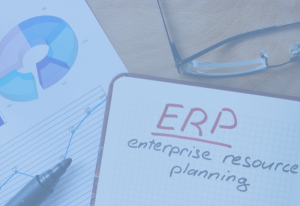
An ERP (Enterprise Resource Planning) system is a comprehensive software that streamlines all business processes within an organization. This includes accounting, financial management, human resources, customer relationship management, and supply chain management, among others. As such, it affects almost every aspect of a company, and the implementation and management of an ERP system is a critical decision for any business.
From the perspective of an IT department, an ERP system is an essential tool that allows for more efficient and accurate management of the company’s data. Here are some of the ways in which an ERP system can benefit your IT department:
- Centralized Data Management: One of the most significant advantages of an ERP system is the centralization of data. An ERP system consolidates data from all departments into a single, integrated database, which helps IT professionals to manage and maintain it efficiently. This eliminates the need for multiple databases, which can be time-consuming to manage and prone to errors.
- Streamlined IT Processes: ERP systems automate many IT processes, such as data entry, reporting, and analysis. This frees up IT staff to focus on more strategic tasks, such as improving the company’s technology infrastructure, developing new systems, and providing IT support.
- Enhanced Security: An ERP system can help to improve the security of company data. ERP systems often include security features such as user authentication, role-based access control, and data encryption, which can help to protect sensitive company information from unauthorized access.
- Scalability: As businesses grow, they need to be able to scale their technology infrastructure. An ERP system is designed to be scalable and can be customized to meet the changing needs of a business. This makes it an excellent choice for companies that are planning to grow or expand their operations.
- Improved Collaboration: An ERP system can improve collaboration between IT and other departments. By providing access to real-time data, an ERP system can help to ensure that all departments are working with the same information. This can help to reduce miscommunication and increase the efficiency of the organization as a whole.
In conclusion, an ERP system is a valuable tool for any IT department. It provides centralized data management, streamlined processes, enhanced security, scalability, and improved collaboration, among other benefits. When implemented and managed effectively, an ERP system can help to improve the overall efficiency of an organization and support its growth and success.




